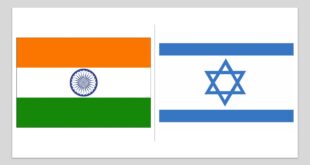- India walked out from the trade pact called the Regional Comprehensive Economic Partnership (RCEP) in November 2019.
- The RCEP involved China, Japan, South Korea, Australia, New Zealand and the 10-state Association of Southeast Asian Nations (ASEAN) grouping.
- Now in 2023 India along with many of the RCEP countries, (except China replaced by the United States), is getting into the U.S.-driven Indo-Pacific Economic Framework for Prosperity (IPEF).
The Indo-Pacific Economic Framework for Prosperity (IPEF):
- The IPEF was launched by the United States in May, 2022 with Australia, Brunei Darussalam, Fiji India, Indonesia, Japan, the Republic of Korea, Malaysia, New Zealand, Philippines, Singapore, Thailand, and Vietnam.
- Through this initiative, the IPEF partners aim to contribute to cooperation, stability, prosperity, development, and peace within the Indo-Pacific region.
- The 14 IPEF partners represent 40 percent of global GDP and 28 percent of global goods and services trade.
- The IPEF has four pillars: (1) Trade; (2) Supply Chains; (3) Clean Energy, Decarbonization, and Infrastructure; and (4) Tax and Anti-Corruption.
- Fearful of a possible trap, India has joined the other three pillars but not trade.
Implication of India joining the IPEF:
- The clear difference between the RCEP and IPEF of China versus the U.S.
- Developing a strategic partnership with the U.S. is India’s top foreign policy priority. However, a strategic partnership with the U.S. need not come at the cost of economic dependency on it.
- The economic issues with the U.S for e.g., about agriculture, intellectual property, labour and environment standards, and the digital economy are could create troubles for India in future.
- The IPEF can already be seen to have deep implications in agriculture, in terms of genetically modified seeds and food.
- It could lead to surrendering policy space for regulating Big Tech companies, and compromising a comparative advantage in manufacturing because of unfair labour and environment standards.
- It will also seriously affect India’s ability to create a vibrant domestic ecosystem in emerging areas such as a digital economy and green products.
- Although the IPEF will boost India-US partnership but the U.S.-driven Indo-Pacific Economic Framework for Prosperity could also result in a complete stranglehold over the economic systems of the participating countries including India.
SOURCE: THE HINDU, THE ECONOMIC TIMES, PIB
 Chinmaya IAS Academy – Current Affairs Chinmaya IAS Academy – Current Affairs
Chinmaya IAS Academy – Current Affairs Chinmaya IAS Academy – Current Affairs

